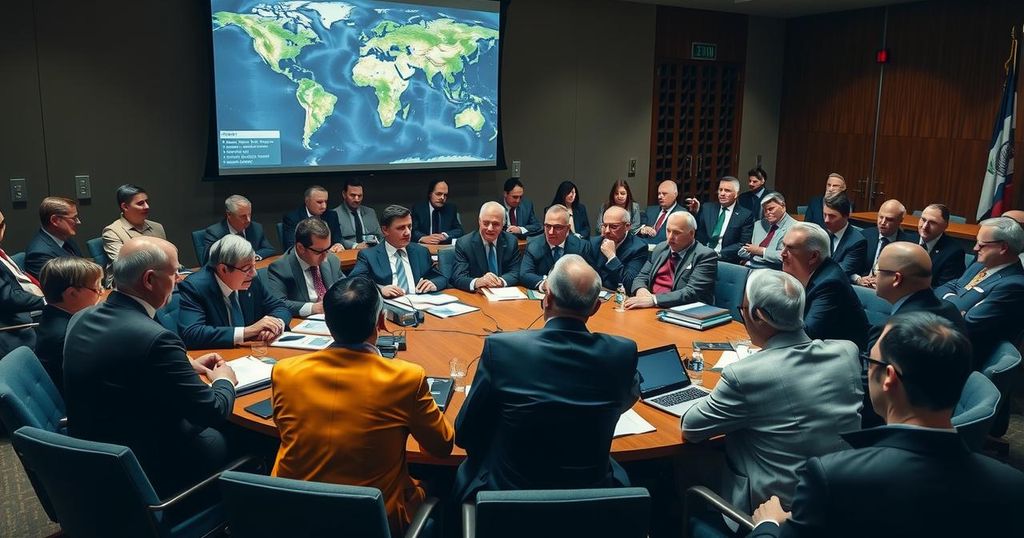Over 1,700 fossil fuel lobbyists are participating in the U.N. climate negotiations in Baku, outnumbering delegates from most nations. Activists express concern over their influence on climate policy, especially amidst the urgent need for action against climate change. Kathy Mulvey from the Union of Concerned Scientists criticized their involvement, signaling potential conflicts in climate discussions.
A coalition of climate organizations reports that over 1,770 lobbyists from fossil fuel industries are participating in the ongoing U.N. climate negotiations in Baku, Azerbaijan. This number significantly surpasses the delegates from nearly all countries, except for Turkey, Brazil, and Azerbaijan. Experts are raising concerns about the influence these lobbyists may have on essential climate discussions, especially as the number of lobbyists dwarfs the delegates from the nations most vulnerable to climate change. Kathy Mulvey of the Union of Concerned Scientists strongly condemned the presence of fossil fuel representatives in policy-making, likening it to “setting the cat loose among the pigeons.” Every attendee at the conference must disclose their organizational affiliation and role, which has allowed climate groups to identify representatives likely aligned with fossil fuel interests. The findings indicate that the fossil fuel lobbyists not only outnumber delegates from at-risk nations but also pose a significant risk to the integrity of climate negotiations. For instance, ExxonMobil’s delegation alone equals that of Guyana, a small nation facing critical sea-level rise due to climate change. As these negotiations unfold, activists underscore the necessity for genuine representation that prioritizes climate action over corporate interests. The lobbyists’ presence raises alarms about the potential impediment to achieving meaningful agreements for climate action.
The current U.N. climate negotiations represent a critical platform for global leaders to address and mitigate the impacts of climate change. Yet, the involvement of fossil fuel lobbyists at such discussions raises serious concerns among advocacy groups about the integrity of the negotiations. The presence of these lobbyists, particularly in disproportionate numbers compared to delegates from vulnerable nations, suggests a significant influence on policy decisions that could undermine global climate initiatives. As the world faces escalating climate threats, the role of corporations in shaping policy becomes increasingly contentious.
In summary, the presence of 1,773 fossil fuel lobbyists at the U.N. climate negotiations in Baku highlights a troubling imbalance in representation, particularly in relation to countries most vulnerable to climate impacts. The outnumbering of delegates from at-risk nations by corporate lobbyists raises critical questions about the influence they may exert on climate policy. Advocates like Kathy Mulvey have vocally opposed their participation, emphasizing the necessity for authentic climate advocacy free from corporate interests.
Original Source: e360.yale.edu






